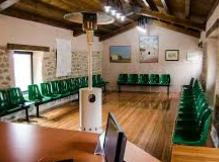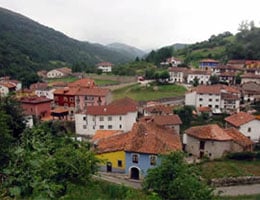 The term council , derived from the Latin concilium , can be used in various ways. The first meaning mentioned in the dictionary of the Royal Spanish Academy ( RAE ) refers to the space where the councilors of a municipality or town hall meet to hold sessions.
The term council , derived from the Latin concilium , can be used in various ways. The first meaning mentioned in the dictionary of the Royal Spanish Academy ( RAE ) refers to the space where the councilors of a municipality or town hall meet to hold sessions.
A council, in this framework, can be a deliberative or assembly body . In Argentina , for example, the deliberative council is the legislative branch of a municipality. The councilors, elected by the people through a democratic process, are in charge of preparing the ordinances that regulate various activities that take place at the local level. These ordinances refer to issues that do not fall within the scope of national or provincial laws.
In other countries , the idea of council may refer to the municipal corporation or the municipality (city council). A council, in this sense, is an institution headed by a mayor or mayor who has decision-making, regulatory and oversight powers. In Asturias, for example, the territory is organized into municipalities that are called councils and regions .
It should be noted that, in ancient times , the neighborhood assembly that allowed citizens to make government decisions was called a council. A distinction can be made between closed councils (in which only certain prominent neighbors could participate) and open councils (all neighbors were authorized to participate); The first type predominated in the Kingdom of Aragon, while the second occurred especially in León and Castile.
These medieval councils met on Sundays and were aimed at defining issues such as the communal use of land (a group of which included mountains, forests and meadows) to carry out their agricultural and livestock activities, as well as exploitation of the mill, the salt well, the oven and the irrigation systems.
On the other hand, these meetings were also held to discuss and make decisions related to various judicial and administrative matters, and the neighbors drafted various documents in which they collected all these issues to give them a legal character. Specifically, these first councils were organized in the Christian kingdoms of the Iberian Peninsula, throughout the so-called Early Middle Ages.
 We can say that the High (or Early ) Middle Ages is the period in the history of the Middle East and the European continent that began with the fall of the Western Roman Empire in the year 476 and extended until the beginning of the following millennium, when which the continent re-emerged from a cultural and economic point of view.
We can say that the High (or Early ) Middle Ages is the period in the history of the Middle East and the European continent that began with the fall of the Western Roman Empire in the year 476 and extended until the beginning of the following millennium, when which the continent re-emerged from a cultural and economic point of view.
The medieval council used to take place once the Sunday mass had finished, in the church atrium itself. The people in charge of the organization rang the bells or sounded some other instrument of great intensity to call the council . It is important to note that attendance was not optional, and those absent were fined.
If we focus on the councils that were held in the 13th century in Castile, for example, it was normal to appoint a judge to preside over the meeting and apply the jurisdiction (the legal statutes that apply in a given locality to regulate local life by means of regulations), as well as a maximum of two mayors who would administer justice; Its functions expanded over time. Other roles similar to that of the judge were that of the zalmedina , in the Kingdom of Aragon, and that of the justice , in the Kingdom of Navarra.
It is important to note that council (with C ) is a word linked to conciliar (agree, agree). On the other hand, advice (with S ) derives from advise (suggest, recommend).
